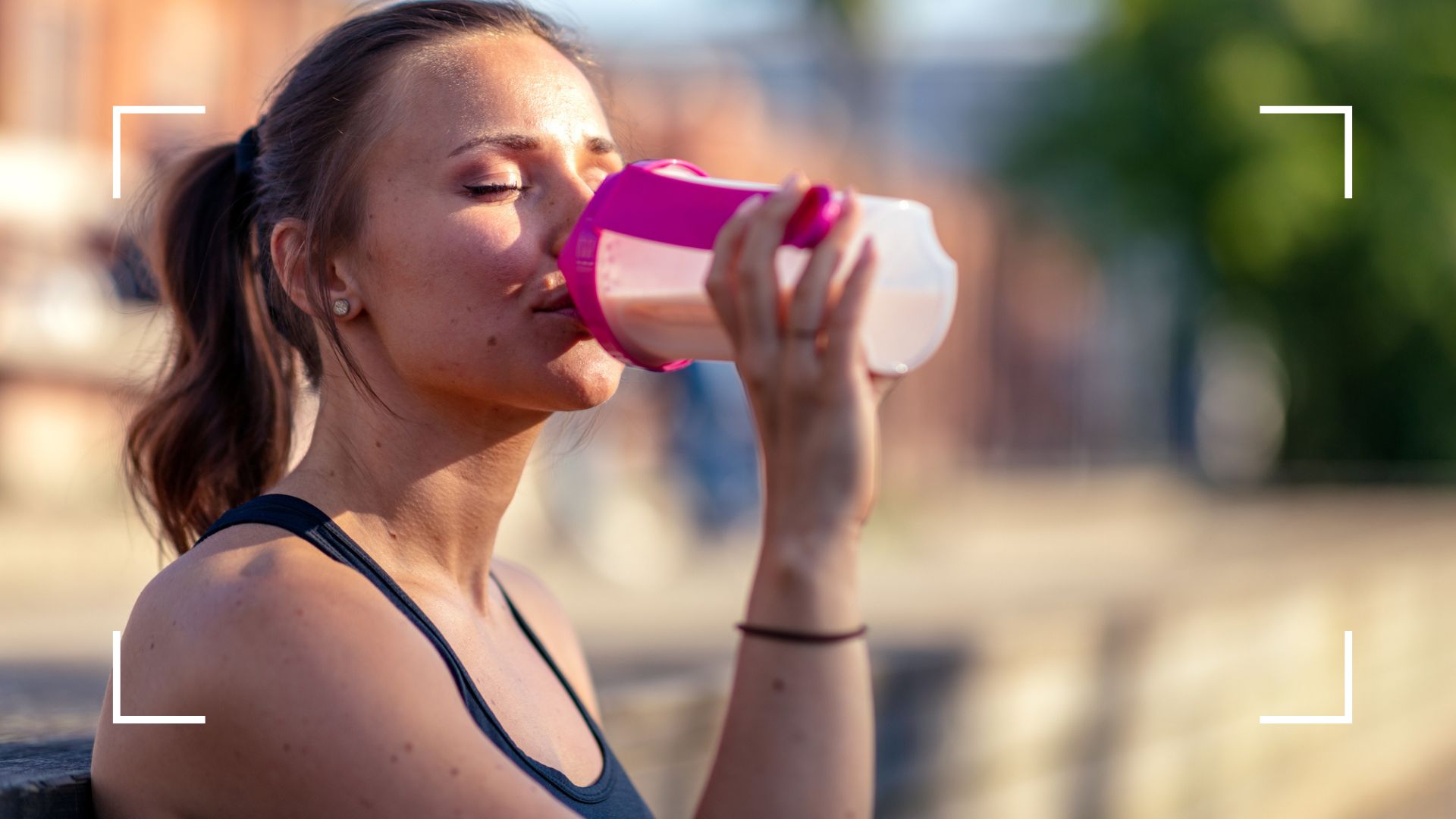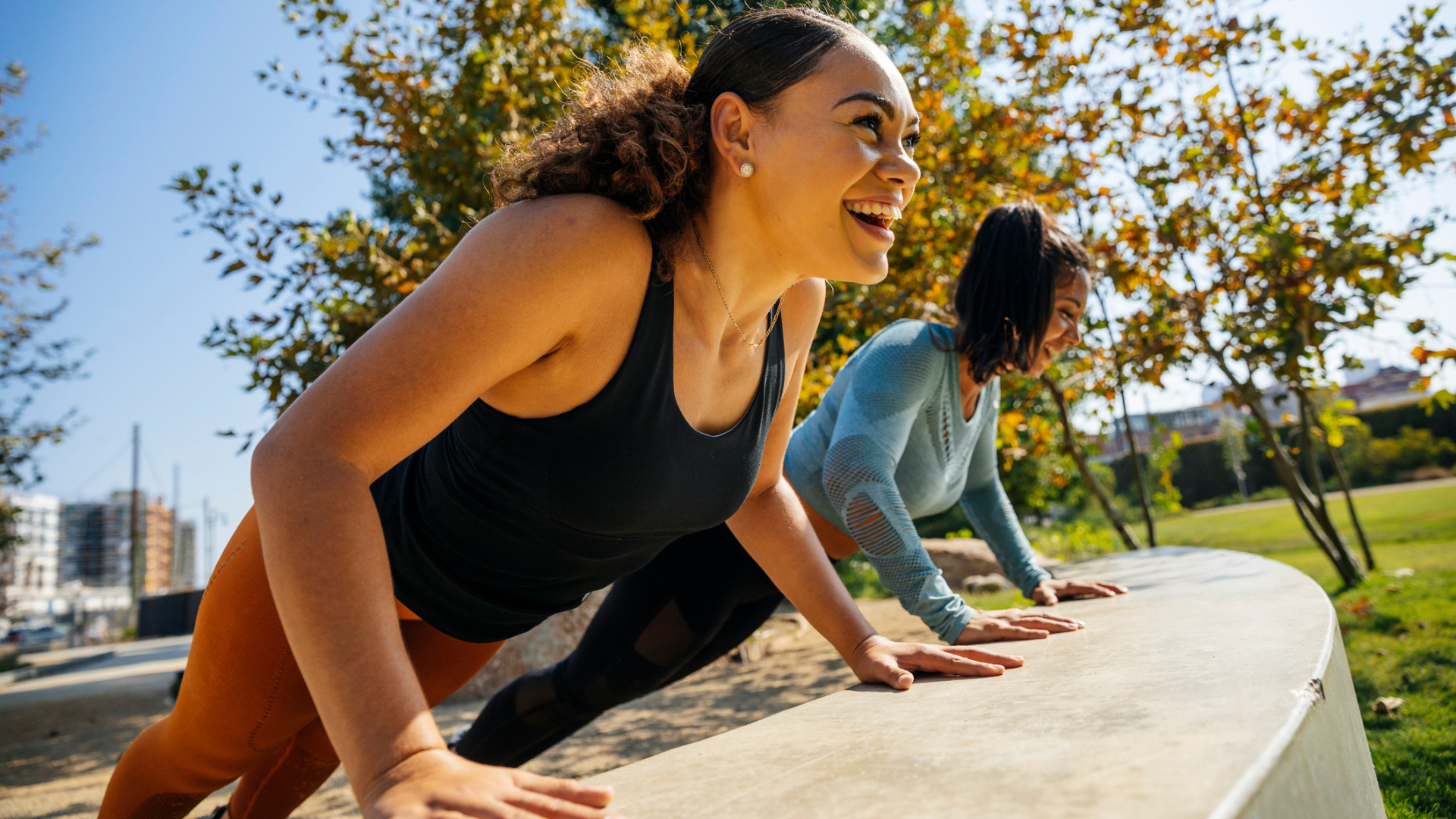The health benefits of protein powder for women, according to a nutritionist
We've got the scoop on the benefits of protein powder when it comes to your health

You've likely heard that there are benefits of protein powder when it comes to maintaining a healthy lifestyle - particularly for women. But if you don't hit the gym or exercise every day, you might be wondering if this nutritional supplement is really for you.
And we don't blame you. When it comes to supplementing your diet outside of your normal breakfast, lunch, and dinner, there's so much misinformation out there designed to sell products and nothing else. It gets even harder when it's a supplement associated with the fitness industry, as those pushing it towards you may look nothing like you, or have a lifestyle totally different from yours.
So, do you really need one of the best protein powders in your daily diet? Maybe, maybe not. Here, we speak to a nutritionist about the benefits of protein powder and whether it could be right for you.
What are the main benefits of protein powder?
1. Muscle growth and repair
Regardless of whether you're a man or a woman, protein is the essential building block of your muscles. So naturally, by eating more of it, you're giving your muscles more of what they need.
When combined with physical activity like strength training, a study by the US Army Research Institute of Environmental Medicine outlines, this leads to muscle growth and muscle repair because exercise damages the fibers of the muscles and protein works to repair them, they grow stronger to cope with the force.
2. Fat loss
If you're aiming to achieve a solid calorie deficit for weight loss, then protein powder could become your new best friend as it helps keep you fuller for longer. "Protein can reduce hunger," confirms nutritionist Rob Hobson. "This subsequently reduces snacking, leading to fewer overall calories consumed. What's more, it has been linked to a slightly higher metabolism, meaning you burn more calories throughout the day, and even while you sleep at night."
Here, Rob points to a study by Yale University's School of Medicine which explains that the thermic effect of food (i.e. how much energy it takes for your body to digest, absorb, and metabolize the food you eat) increases when more of that food is protein based. This means that you use more energy to metabolize the food and so burn more calories.
Sign up to our free daily email for the latest royal and entertainment news, interesting opinion, expert advice on styling and beauty trends, and no-nonsense guides to the health and wellness questions you want answered.
It's also very common to find yourself hungrier than normal post-exercise - it's actually one of the reasons why you shouldn't exercise on an empty stomach. Consuming protein before a workout can help to balance your appetite, meaning you eat with more stability throughout the day.
You can supplement your diet with protein by making savvy additions to your regular meals, like adding chicken to your salad, but some people find protein powder a more convenient way to make sure they're getting enough of the nutrient.
"Protein is, of course, present in animal products like meat, poultry, and fish, and through plant-based options like beans, pulses, and nuts," notes Gareth Nichols, a nutritionist for sports supplement brand Maximuscle. "However, protein powders are very convenient and make for a great alternative vegan protein source if you buy the right one."
But it's also important to note that protein can work against you for fat loss if you have too much of it. As a study by Hospital Universitari de Sant Joan de Reus points out, protein is still calories at the end of the day and even if you push yourself out of your calorie deficit with protein, you're still above your recommended intake and will likely struggle to lose weight.

3. Reduces the urge to snack
Now, there's nothing wrong with a late night snack or munching on a couple of squares of chocolate when you're bored - we all do it. But if snacking is getting in the way of your regular eating habits or you're looking to learn how to stop eating chocolate, then it might be time to incorporate more protein into your diet.
While one of the only studies on the topic looks at men, there are comparable elements which means this could work for women too. The study by the University of Missouri looked at overweight men and found that increasing protein intake so that it made up 25% of daily calorie intake reduced cravings by an impressive 60%, and the desire to snack late into the night by almost half.
Researchers weren't entirely sure why this was the case but the argument, from another study by Missouri University, is that protein improves the function of dopamine, otherwise known as one of the 'happy hormones' and one of the main ones involved in creating cravings.
4. Combat the effects of menopause on muscles and bones
As we grow older, it becomes more important for women to eat enough protein since one of the biggest signs of menopause is a loss of muscle mass. For the same reasons, taking creatine for women can be beneficial.
As a joint study by the University of Minnesota and Jyväskylä confirms, this is because of the natural decline in estrogen that starts during perimenopause.
While a loss of muscle mass may not seem like a significant issue when compared with some of the more immediate symptoms of menopause, muscle atrophy can have a serious impact on your overall health and disrupt your life more than you may think.
Signs of muscle atrophy include:
- Numbness or tingling in your arms and legs.
- Struggling to walk or balance
- Difficulty swallowing or speaking
- Facial weakness
- Gradual memory loss
Another important plus point of eating more protein as you get older is to improve bone density. As much as an estrogen deficiency will reduce muscle mass, it also reduces bone density, according to a study by Near East University of Medicine, and makes you more prone to conditions like osteoporosis.
"Protein is extremely important as we age," stresses Hobson. "Women going through menopause may see a decrease in muscle mass, and protein can help avoid this. Plus, bone mass density also declines due to a drop in the hormone estrogen."
Just like with healthy fat loss though, protein powder can't do all the work. Strength training, whether it's bodyweight exercises at home or working out in the gym, is essential for forcing those muscle fibers into action.
4. May reduce your risk of heart disease
There's no one supplement, food, exercise regime or anything that will reduce your overall chance of heart disease, unfortunately, but various studies have suggested that incorporating whey protein into your diet could be beneficial in combination with other preventative measures.
As a study in association with Tehran University of Medical Sciences explains, high cholesterol (especially LDL cholesterol, otherwise known as bad cholesterol) is a serious risk factor for heart disease. In this case, researchers looked at overweight individuals and found that those who consumed 65g of whey protein, an animal-based protein, every day for 12 weeks experienced a significant reduction in their overall cholestrol and particularly LDL cholesterol levels.
Another study, looking at women between the ages of 34 to 59, found that the risk of ischemic heart disease was lower in those who followed a diet higher in protein. The research by Harvard School of Public Health looked at both animal-based and plant proteins, and also discovered that replacing carbohydrates with protein may also be associated with a lower risk of heart disease.
However, not all studies on the subject have reached the same conclusion and researchers from Harvard warned that with higher protein intake often comes a higher intake of saturated fats, which are a contributor to higher cholesterol levels.
How much protein should I consume?
How much protein you should eat varies depending on how much you weigh. According to the British Nutrition Foundation, women aged between 19 and 50 years old need around 0.6g of protein per kilogram of body weight every day. This means that a woman weighing 11 stone - approximately 70kg - would need 42g of protein daily.
For the reasons mentioned above, this goes up to 0.8g per kg for women over 50 years old. So post-50, the same women at 11 stone would now need around 56g of protein, according to the same advice.
Lucy Gornall is the former Health & Fitness editor at Future and a personal trainer specializing in pre and post-natal exercise.